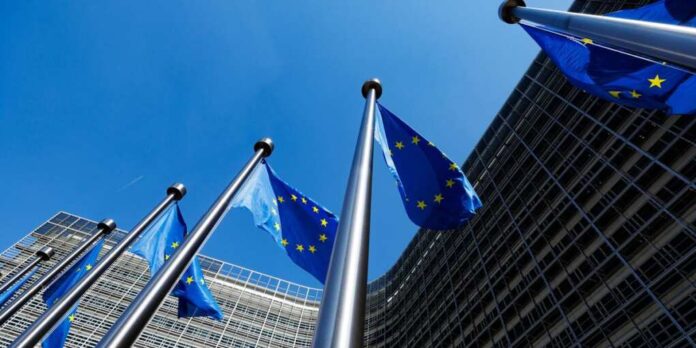
French officials are ramping up threats of economic retaliation against the United States after President Donald Trump’s “reciprocal tariffs” rocked the global market and sent Brussels into damage control mode.
France’s Foreign Trade Minister Laurent Saint-Martin said Monday that the European Union should consider deploying its full “toolbox” of anti-coercion measures in response, warning that the retaliation “can also be extremely aggressive in return.”
Options reportedly on the table include banning U.S. investment in the EU and freezing American firms out of public markets—an economic shot across the bow aimed directly at Wall Street.
“We must not exclude any option,” Saint-Martin said ahead of high-stakes meetings in Luxembourg, pushing for Brussels to strike back hard against Trump’s trade play.
The escalation follows Trump’s latest round of tariffs that hit EU goods with steep import taxes—measures the White House has framed as long-overdue reciprocal adjustments after decades of European barriers against U.S. exports.
But the real explosion is happening in Paris, where President Emmanuel Macron has already urged French companies to halt new investments in the U.S. amid the trade standoff. Economy Minister Éric Lombard followed suit, calling for “patriotism” from French firms, warning them not to reward what he sees as unfair American tactics.
“It is clear that if a large French company agreed to open a factory in the United States, it would give the Americans a point,” Lombard said.
Germany, however, is urging caution. While Berlin has also been hit hard—especially its auto industry—it’s taking a less bombastic tone, wary of escalating into an all-out trade war. German government spokesman Steffen Hebestreit said Monday that the goal should be “reducing trade barriers,” not emotional retaliation.
“We don’t want to bring about a trade war,” Hebestreit said, though he made it clear that Berlin would protect domestic industry from further harm.
The EU’s chief trade official, Slovak diplomat Maroš Šefčovič, called Trump’s new policy a “paradigm shift” and suggested the EU would look to strengthen global trade ties elsewhere while supporting struggling European industries.
Meanwhile, markets across Europe tumbled. The Eurostoxx 600 index dropped roughly five percent by midday Monday, a major hit driven by investor panic over worsening transatlantic trade relations.
But President Trump isn’t flinching.
Speaking aboard Air Force One Sunday, he doubled down, saying that short-term market shocks are the “medicine” America needs to break free from decades of economic abuse by foreign trade partners.
“I don’t want anything to go down, but sometimes you have to take medicine to fix something,” Trump said. “We have been treated so badly by other countries.”
He revealed that over $7 trillion has already been committed for investment into the U.S. under his tariff regime—including in auto plants and semiconductor manufacturing.
“Eventually,” he said, “America will be the most dominant country economically in the world.”
As the EU scrambles to unify its approach, all eyes are now on Brussels—and on whether France’s threats will translate into real, punitive action against American business. One thing is clear: the Trump administration has thrown the global trade game into total upheaval, and Europe may just be getting started with its response.











